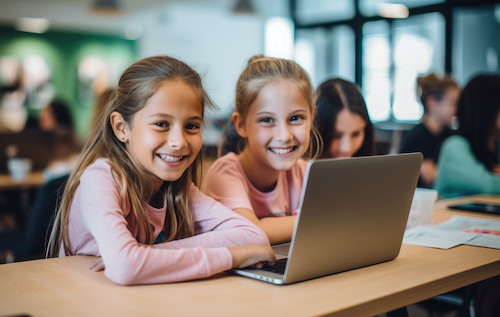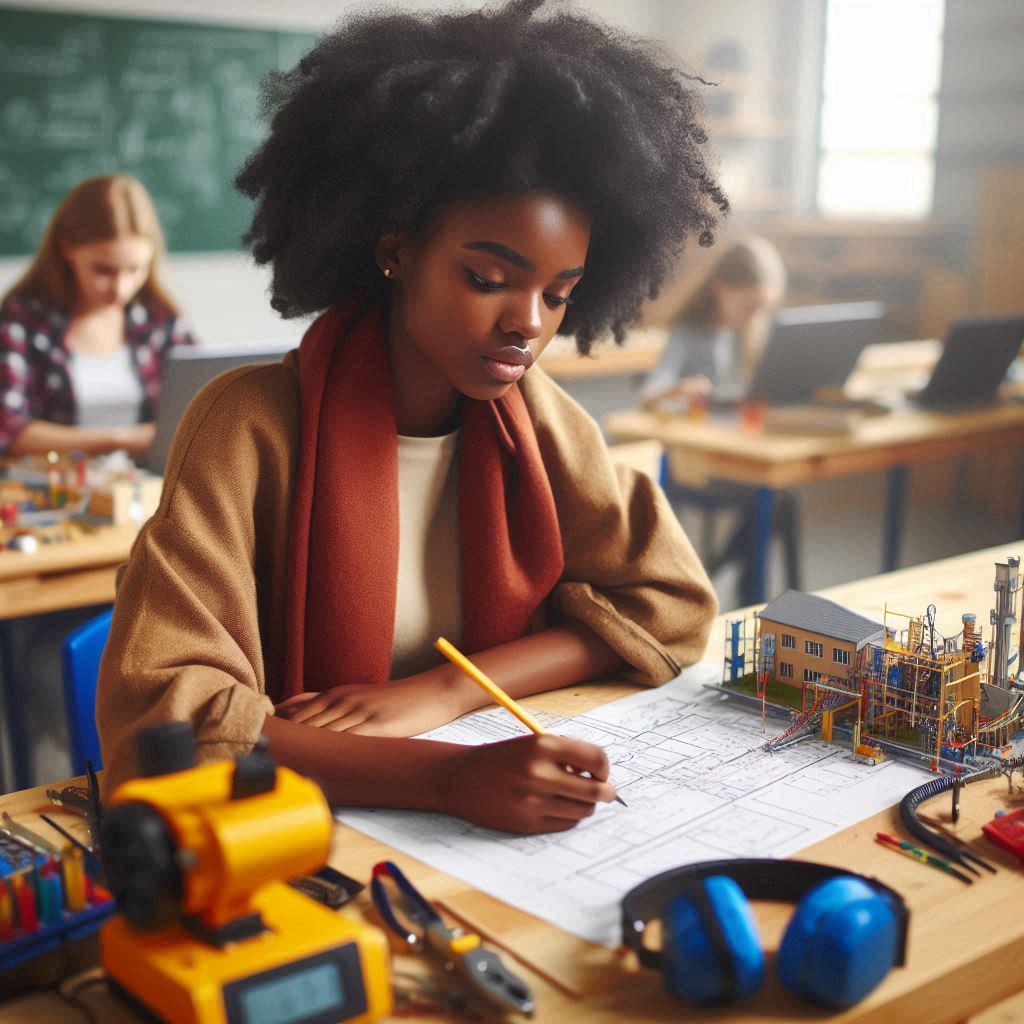Ingenious Approaches for Enhancing Technology Education in Today's Understanding Atmospheres
The evolving landscape of innovation education and learning demands a reevaluation of conventional instructional approaches to better outfit students for the intricacies of the contemporary globe. Ingenious techniques, such as hands-on discovering experiences and joint project-based initiatives, play an essential function in linking academic principles with useful applications. In addition, the integration of online resources and gamification can improve interaction and motivation amongst students. As we check out these methodologies, it becomes critical to think about exactly how tailored understanding can further enrich the educational experience and promote a deeper link between trainees and technology. What might this mean for the future of education and learning?
Hands-On Learning Experiences
Hands-on discovering experiences function as a cornerstone in technology education, efficiently bridging the space in between theoretical knowledge and sensible application. These experiential activities make it possible for pupils to engage straight with tools, software program, and innovation, promoting a deeper understanding of principles that are typically abstract in typical class setups.
By including hands-on discovering, educators can facilitate an environment where students can experiment, introduce, and troubleshoot. This approach not only cultivates technological abilities however also boosts analytical capabilities, as pupils are motivated to face real-world obstacles. Hands-on experiences frequently lead to increased student motivation and involvement, as learners see the prompt importance of their studies to useful situations.
Additionally, such experiences can take numerous types, including lab experiments, simulations, and interactive jobs, every one of which deal with various understanding styles. The integration of hands-on knowing in modern technology education and learning also promotes retention of information, as students are more likely to bear in mind ideas they have actually actively worked with as opposed to passively observed. Overall, hands-on experiences are crucial in preparing students for the intricacies of the contemporary technical landscape, outfitting them with the abilities and self-confidence required to do well in their future jobs.
Collaborative Project-Based Knowing
Joint project-based discovering encourages trainees to function together in groups to resolve complicated, real-world troubles, cultivating necessary skills for the modern labor force. This strategy encourages active involvement, vital thinking, and imagination, as trainees work out roles, share duties, and collectively devise services. By submersing themselves in jobs that show authentic obstacles, learners develop a much deeper understanding of the subject issue while developing their capability to connect and collaborate efficiently.
In technology education, collaborative project-based discovering can manifest through interdisciplinary projects that include components of layout, design, and coding. Pupils may collaborate to create a mobile application or style a model that addresses a societal issue, needing them to integrate different technological principles and devices. This experiential discovering not only improves technological efficiency but likewise cultivates analytic skills and versatility.
In addition, such collaborative endeavors advertise a sense of community among pupils, fostering social partnerships and a shared dedication to their project end results. As they browse the complexities of synergy, students learn to appreciate varied point of views and utilize each other's strengths, preparing them for future specialist environments where partnership is vital. Ultimately, joint project-based knowing is a cornerstone of efficient modern technology education and learning.
Integration of Online Resources

The assimilation of on-line resources helps with accessibility to up-to-date info and market standards, which is essential in a swiftly developing technical landscape. By leveraging platforms such as MOOCs (Enormous Open Online Courses) and specialized educational internet sites, educators can supplement standard educational programs with real-world applications, allowing trainees to involve with existing trends and methods.

Eventually, the thoughtful integration of online sources in innovation education fosters an extra vibrant, appealing, and relevant understanding experience, outfitting trainees with the skills and knowledge essential to prosper in a progressively digital globe.
Gamification Methods in Education
The unification of gamification methods in education stands for a powerful approach to additionally engage students and improve their knowing experiences. By incorporating game-like aspects such as points, badges, and leaderboards into the educational program, instructors can promote motivation and promote a sense of competitors amongst students. These methods encourage involvement and persistence, specifically in subjects that might or else appear discouraging.
Gamification can take different kinds, including interactive tests, collaborative jobs, and immersive simulations, which allow trainees to use their understanding in sensible contexts. This interactive method not just makes learning satisfying yet likewise enhances key ideas via repetition and instant responses. As students development, they can track their success, promoting a growth mindset and a sense of success.
Moreover, gamification helps with set apart instruction by catering to varied understanding styles and speeds. Trainees are encouraged to take possession of their learning journey, enabling an extra tailored educational experience. In a progressively digital globe, using gamification strategies can link the gap between traditional education and contemporary technological improvements, inevitably preparing pupils for future obstacles.
Personalized Understanding Approaches
Personalized learning approaches are increasingly recognized as important for dealing with the diverse needs and preferences of students in today's educational landscape. These techniques empower learners by tailoring instructional experiences to specific passions, toughness, and finding out speeds, consequently improving engagement and retention.
In technology education, individualized understanding read the article can take numerous types, including adaptive learning technologies, individualized educational programs, and project-based discovering tailored to student passions. Platforms that make use of man-made intelligence can browse around here assess a pupil's performance information to suggest particular sources or tasks that align with their understanding style.
Furthermore, individualized knowing encourages trainee agency, permitting learners to establish goals and pick pathways that reverberate with their aspirations (Insurance). This autonomy cultivates a deeper link to the material, eventually leading to boosted outcomes
Educators play a critical function in this procedure, employing developmental assessments to keep an eye on progression and change guideline accordingly. Joint tools and digital profiles can also help with tailored knowing, permitting students to assess their trips and display their achievements.
Final Thought
To conclude, enhancing innovation education and learning in modern learning atmospheres requires the execution of cutting-edge techniques that prioritize hands-on discovering, joint tasks, and the assimilation of online resources. Gamification techniques offer to boost involvement and motivation, while individualized knowing approaches suit individual staminas and foster student agency. Collectively, these techniques develop a vibrant instructional experience that prepares pupils for real-world obstacles and grows essential skills for future success in a rapidly evolving technical landscape.
As we discover these techniques, it comes to be crucial to think about exactly how individualized discovering can even more enrich the educational experience and cultivate a much deeper link between students and technology. The assimilation of hands-on understanding in modern technology education and learning likewise promotes retention of information, as pupils are extra likely to remember concepts they have actually actively worked with instead than passively observed.The unification of gamification methods in education stands for an effective method to even more involve trainees and enhance their understanding experiences. this Trainees are empowered to take possession of their discovering journey, permitting for a much more personalized instructional experience.In conclusion, boosting innovation education in modern learning atmospheres necessitates the execution of innovative approaches that prioritize hands-on understanding, collective tasks, and the combination of on-line resources.